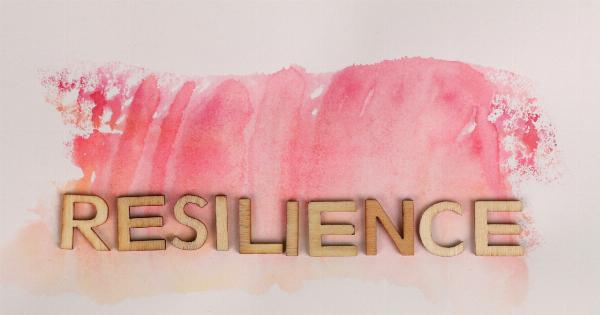After experiencing a traumatic event or going through a period of extreme stress, it is completely normal to feel overwhelmed, anxious, or depressed.
However, with time and proper psychological recovery techniques, it is possible to regain a sense of normalcy and rebuild your mental and emotional wellbeing. This article will explore various strategies and tips for getting back to normal and finding strength and resilience in the face of adversity.
Understanding Psychological Recovery
Psychological recovery refers to the process of healing and regaining a sense of wellbeing after a traumatic event or period of intense stress. It involves rebuilding one’s emotional strength, coping mechanisms, and overall mental health.
The recovery process is highly individual and can vary in duration and intensity depending on the individual and the nature of the experience. However, there are common strategies that can help facilitate the journey towards psychological recovery.
Recognizing and Accepting Emotions
One of the first steps towards psychological recovery is acknowledging and accepting your emotions. It is important to give yourself permission to feel whatever emotions arise, whether it be sadness, anger, fear, or confusion.
Trying to suppress or ignore these emotions can prolong the recovery process. By allowing yourself to fully experience and accept your emotions, you can begin to process and work through them.
Seeking Support
Reaching out for support is crucial during the recovery process. This can come in various forms, such as confiding in a trusted friend or family member, joining a support group, or seeking professional help.
Talking about your experiences and emotions with someone who is understanding and non-judgmental can be incredibly therapeutic. Additionally, trained professionals can provide specialized guidance and support tailored to your specific needs.
Engaging in Self-Care
Self-care plays a crucial role in psychological recovery. Taking care of your physical and emotional wellbeing can help restore a sense of normalcy and balance in your life.
This includes engaging in activities that bring you joy and relaxation, such as exercise, hobbies, and spending time in nature. Nourishing your body with healthy foods and ensuring you get enough sleep are also essential for recovery.
Practicing Mindfulness and Relaxation Techniques
Mindfulness and relaxation techniques can be powerful tools for reducing stress and promoting psychological recovery. Mindfulness involves being fully present in the moment and non-judgmentally observing your thoughts and emotions.
This practice can help break the cycle of negative thinking and increase self-awareness. Additionally, relaxation techniques such as deep breathing exercises, meditation, and progressive muscle relaxation can help calm the mind and promote a sense of inner peace.
Setting Realistic Expectations
It is important to set realistic expectations for yourself during the recovery process. Understand that healing takes time and that it is normal to have ups and downs along the way.
Do not be too hard on yourself for not bouncing back immediately or for experiencing setbacks. Setting small, achievable goals can provide a sense of accomplishment and help you stay motivated as you work towards psychological recovery.
Creating a Routine
Establishing a daily routine can provide stability and structure during the recovery process. Having a regular schedule can help reduce anxiety and create a sense of normalcy.
Make sure to include activities that promote self-care, such as exercise, hobbies, and relaxation techniques, as well as tasks that contribute to your overall wellbeing and personal growth.
Challenging Negative Thoughts
Recovering from a traumatic event or prolonged stress often involves challenging negative thoughts and beliefs that may have developed as a result of the experience.
Negative thinking patterns can hinder the recovery process and keep you stuck in a cycle of negativity. Practice identifying and questioning your negative thoughts, replacing them with positive or more realistic ones. Cognitive-behavioral therapy (CBT) can be particularly helpful in this regard, as it focuses on changing the way you think and behave.
Engaging in Meaningful Activities
Engaging in activities that bring a sense of meaning and purpose can be empowering and aid in psychological recovery. This can include volunteering, participating in hobbies or creative outlets, or engaging in acts of kindness towards others.
By focusing on activities that align with your values and bring you a sense of fulfillment, you can gradually rebuild your sense of self and regain a feeling of normalcy.
Practicing Gratitude
Cultivating a practice of gratitude can have a transformative effect on psychological recovery. Even in the midst of challenging circumstances, there are usually aspects of life to be grateful for.
Keep a gratitude journal and regularly write down things you are grateful for. This practice can help shift your focus from the negative to the positive, fostering a sense of optimism and resilience.
Conclusion
Psychological recovery is a journey that takes time, patience, and self-compassion.
By recognizing and accepting your emotions, seeking support, engaging in self-care, practicing relaxation techniques, setting realistic expectations, creating a routine, challenging negative thoughts, engaging in meaningful activities, and practicing gratitude, you can gradually move towards regaining a sense of normalcy and rebuilding your mental and emotional wellbeing.






























